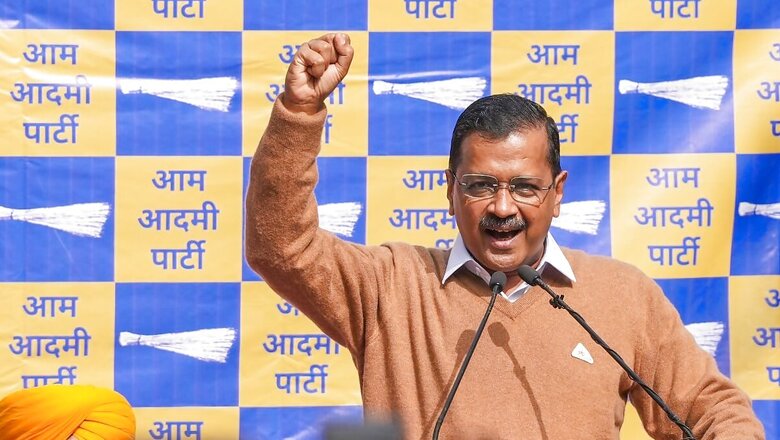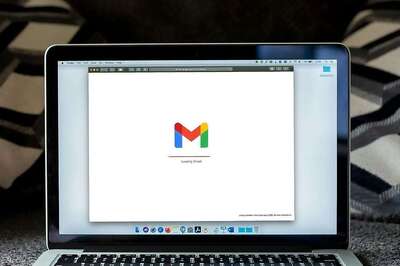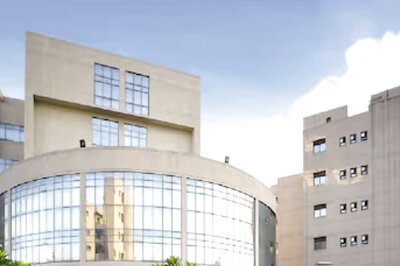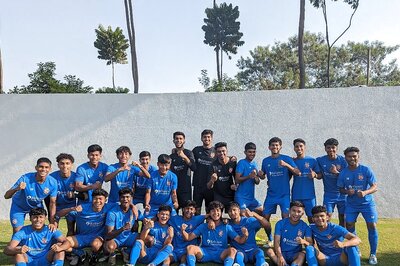
views
After a cat-and-mouse game since November 2023, the Enforcement Directorate finally arrested Delhi chief minister and Aam Aadmi Party convener Arvind Kejriwal on Thursday. The ED arrested Kejriwal after the Delhi High Court refused to intervene and provide any protection to him.
What led to Delhi CM Arvind Kejriwal’s Arrest?
1. High Court not intervening
Arvind Kejriwal was buoyant after a Delhi court granted him bail against the ED’s plea. But his petition before the High Court yielded no result. On Thursday, the HC refused to intervene when Kejriwal sought protection from “coercive action".
In fact, during the hearing, the High Court asked Additional Solicitor General SV Raju what was stopping the agency from arresting Arvind Kejriwal.
“We never said that we’re going to arrest. The power is there. You come join the investigation, we may or may not arrest," Raju said.
Within an hour, a 12-member team of ED, supported by Delhi Police and other officials, reached the Delhi CM’s residence. A search ensued leading to the seizure of mobile phones and digital devices. Around 9 pm, Kejriwal was arrested on charges of conspiracy and money laundering.
2. Kavitha’s arrest gave hint
The arrest of Bharat Rashtra Samithi leader K Kavitha by the ED last week gave indications that the agency was moving fast against Arvind Kejriwal too. The directorate’s statement against the BRS leader said, “Investigation has revealed that K Kavitha along with others allegedly conspired with the top leaders of AAP including Arvind Kejriwal and Manish Sisodia for getting favours in the Delhi Excise policy-formulation and implementation. In exchange for these favours, she was allegedly involved in paying 100 Crore to the leaders of AAP."
The ED could confront Kejriwal with Kavitha who would be in the agency’s custody till March 23.
3. Nine summonses ignored
Even though the ED has been under attack from the opposition for allegedly working at the behest of the union government and the ruling BJP, the legal advice in the case of Arvind Kejriwal suggested the probe team was on solid ground.
The legal advice, as per officials, was that Kejriwal had queered the pitch for himself by evading nine summonses. The AAP convener had first called the summonses illegal and political and then said that he was available to answer questions via videoconferencing. He also sought clarification from the ED about in what capacity he was being summoned. On Thursday, the ED told the Delhi High Court that Kejriwal was called for questioning in his individual capacity and not as the national convener of AAP.
4. Evidence against Kejriwal
The ED in its previous charge sheets too quoted Kejriwal’s FaceTime conversation with so-called South Group businessman Sameer Mahendru, in which he allegedly called Vijay Nair “my boy". AAP’s former communication incharge Nair stands accused of colluding with the South Group from the start, ensuring bribe in cash was delivered, and the excise policy was drafted in a way that provided quid pro quo to the alleged bribe payers. Sarath Reddy, a businessman of the South Group, reportedly told the ED that Nair facilitated discussions with businessmen from the group and proposed an amount of Rs 100 crore to influence the excise policy in favour of K Kavitha and the South Group.
The ED now wants to question Kejriwal in custody about his alleged FaceTime conversation and his association with Nair.
The agency also wants Kejriwal to answer if he met MP Magunta Srinivasulu Reddy in March 2021 when discussions about the impending Delhi excise policy happened. At this meeting allegedly Kejriwal mentioned that Kavitha was already in the loop about the policy.
The agency has picked up fresh evidence after raiding K Kavitha about the payment and laundering of bribe amounts. Officials said Kejriwal was evasive in his answers and hence custodial interrogation was needed.


















Comments
0 comment